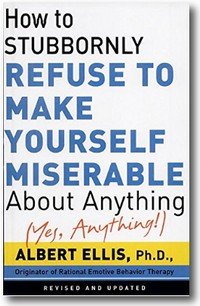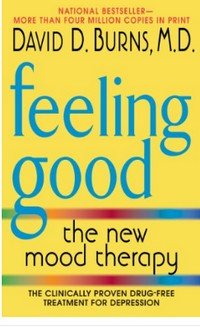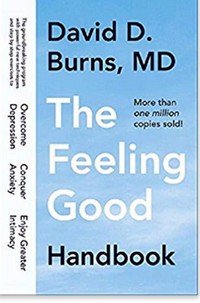Can you dispute a “secondary disburbance”?
|
|
Hi REBT Mates!
Burns concludes “Therefore, you could not say, ‘I must not feel depressed today’ and that rules out disputing a secondary disturbance.
Good question! I am not sure what David said, but I am quite sure that he did not mean to suggest that we cannot dispute a “secondary disturbance.” We can, and it is very important that we do!
“I must not feel depressed” is a (secondary) distorted thought which provokes guilt over being depressed. If I said, instead, “You must not be depressed!” that would probably cause me to be pissed off or frustrated with you for being depressed! Depression is the primary disturbance, and guilt is the secondary disturbance. You can feel guilty or anxious or angry or ashamed about being depressed, depending on what nutty stuff you are telling yourself. And, you can feel anxious over being depressed or anxious about any other emotion or experience you are having for that matter. And you can be depressed over being depressed, which is a particularly cruel “trick” to play on your dear, sweet self!
The experience that people refer to as “self pity” is a secondary disturbance of awfulizing and “musterbating” over some event or experience. “It is so awful that this [depression or whatever] is happening to me. I must not feel or experience such things, and I can’t stand it when I do!”
BTW, this is just they way our brains evolved. While it is an inherent vulnerability or glitch in the system, it does NOT represent some kind of character flaw or in the old sense of the word a “neurosis.” But we do need to understand how our systems work and how we can manage them in healthy ways.
  |
  |
 |
 |
 |
 |
 |
 |
It is also important to remember that the so called “secondary” disturbance is secondary only because it occurs second sequentially. In terms of difficulty or painfulness, it may be as bad or even worse than the primary disturbance, and in any event, not dealing with the secondary disturbance may prevent you from making progress with the primary disturbance. Conversely, cleaning the secondary disturbance effectively may make successfully disputing and replacing the primary disturbance much easier, faster and more straight-forward than you imagine. Sometimes the primary disturbance will just clear up spontaneously once you have attended to the secondary disturbance.
In CBT-REBT theory, all emotions are intimately entwined with thoughts flowing and skittering along just below the level of conscious awareness, usually. Happily we can learn to tune in to these skittering thoughts fairly easily, like tune in distant radio stations on an old fashioned radio set. We don’t need to lay on a couch and free associate for couple of years as Freud thought and taught. Disturbed emoting is intimately entwined with disturbed thinking. You deal with a secondary disturbance” in exactly the same way as you deal with a primary disturbance.
Regardless of whose system or form you prefer to use, the dynamics are all the same:
|
Cheers,
Rex
Rex@REBTinfo.com
![]()
Originally posted 2012-09-21 05:22:16.
- Acceptance is the soft underbelly of REBT! - Tue 3 Feb 26


